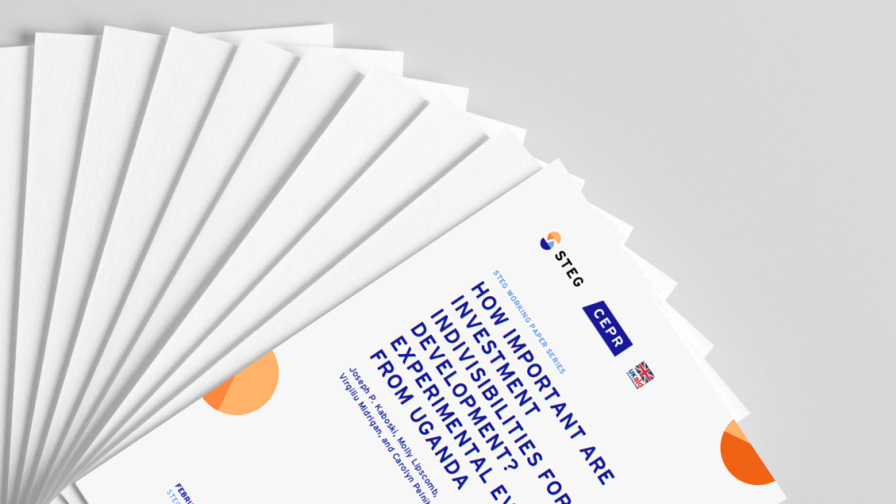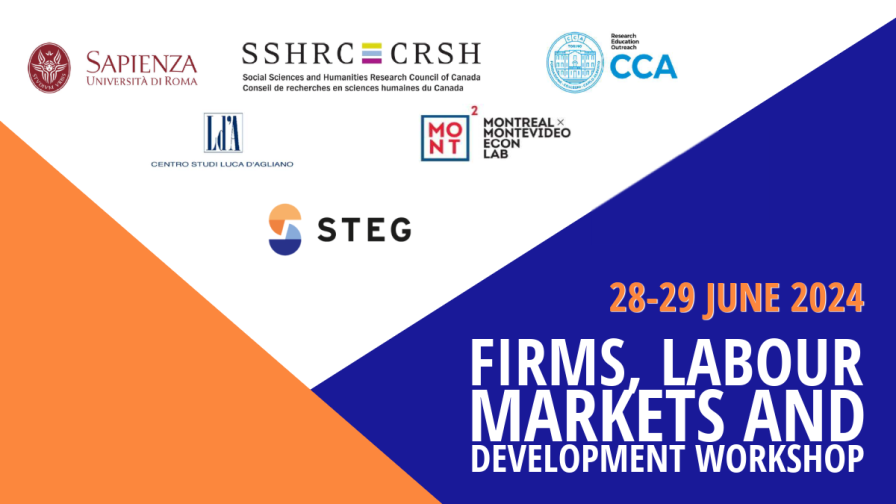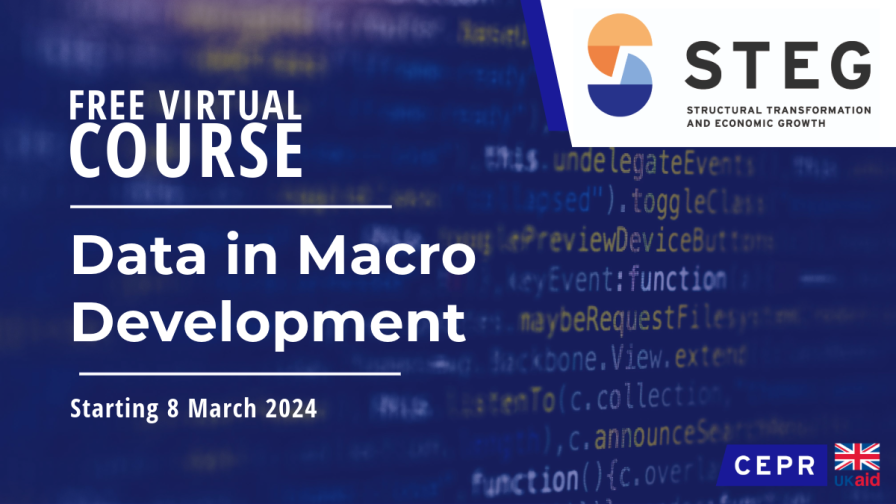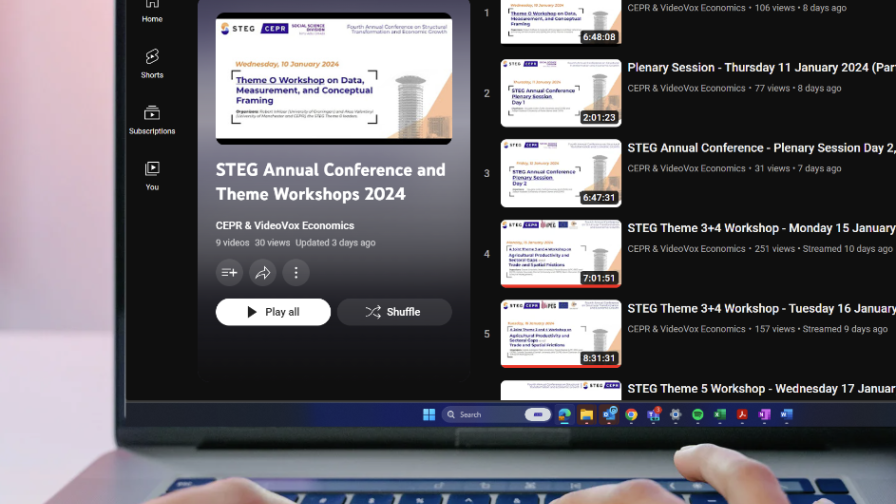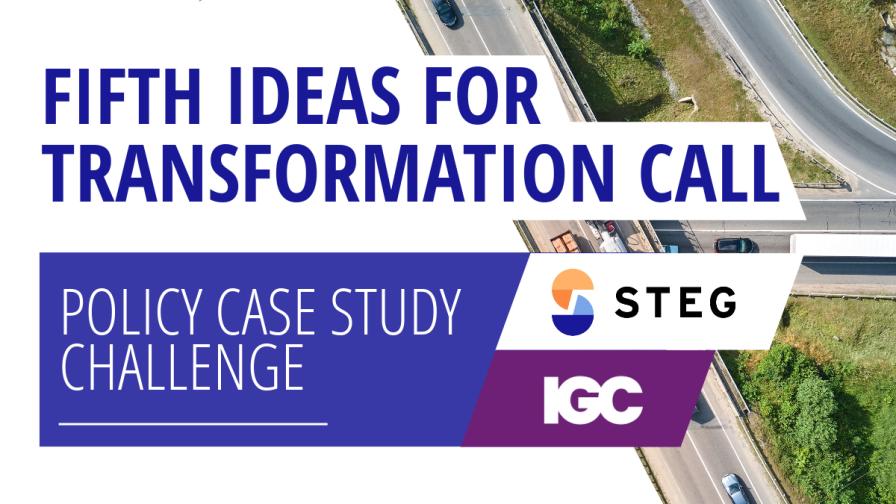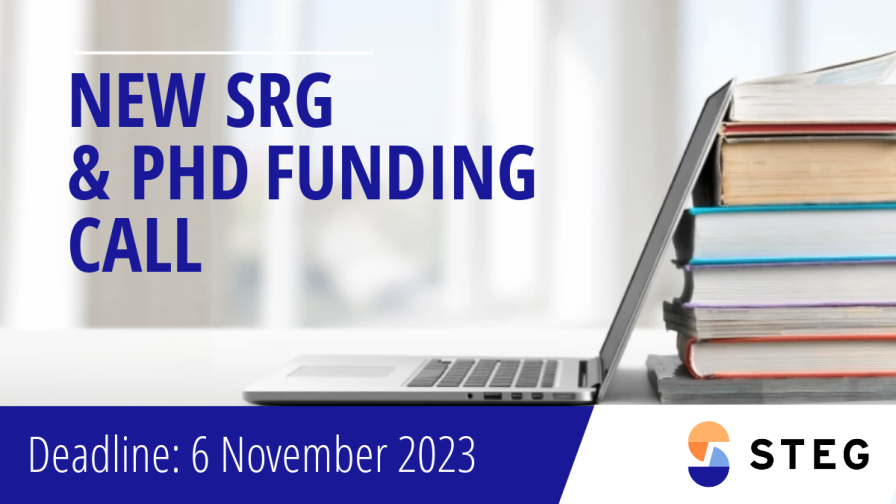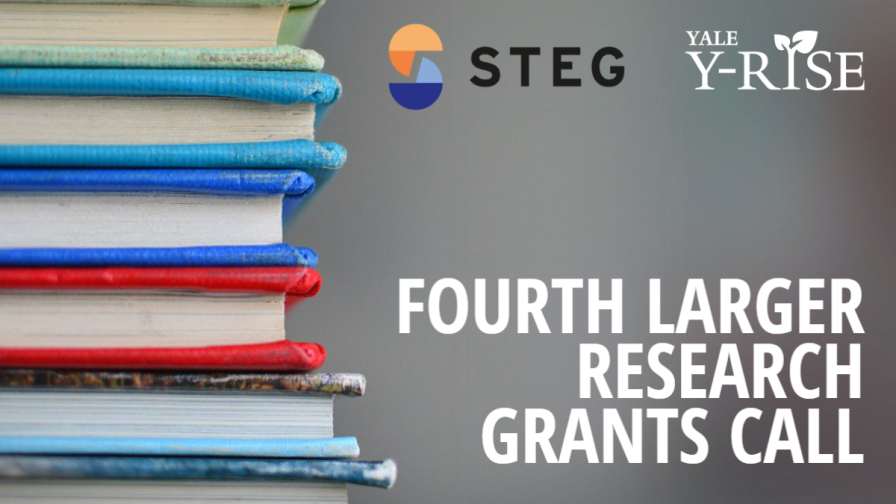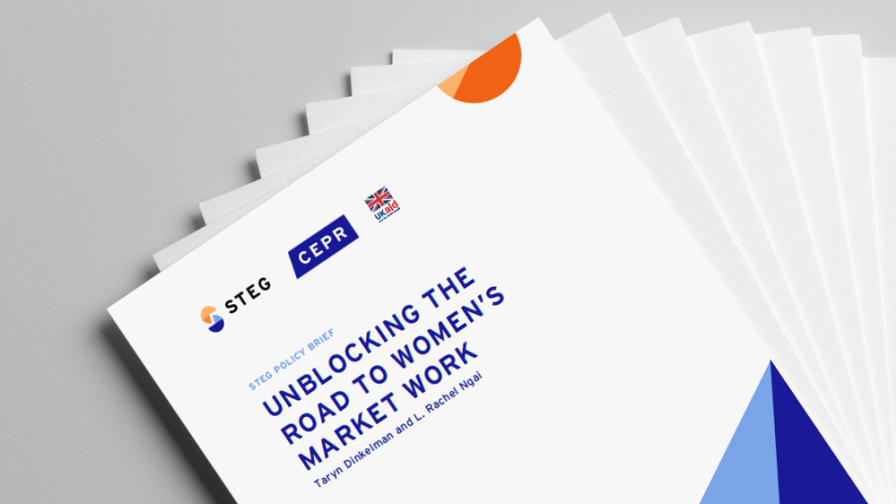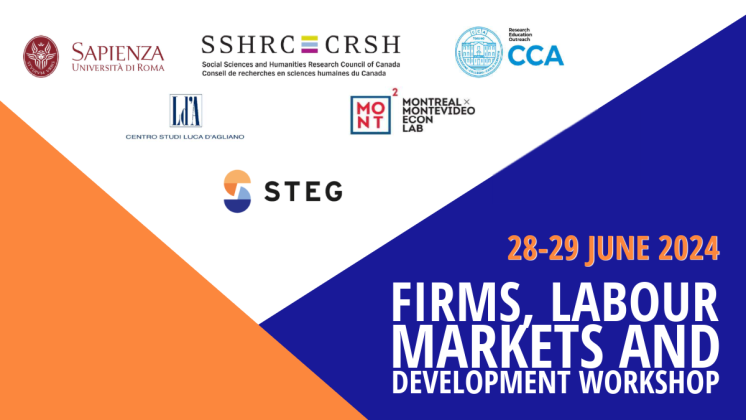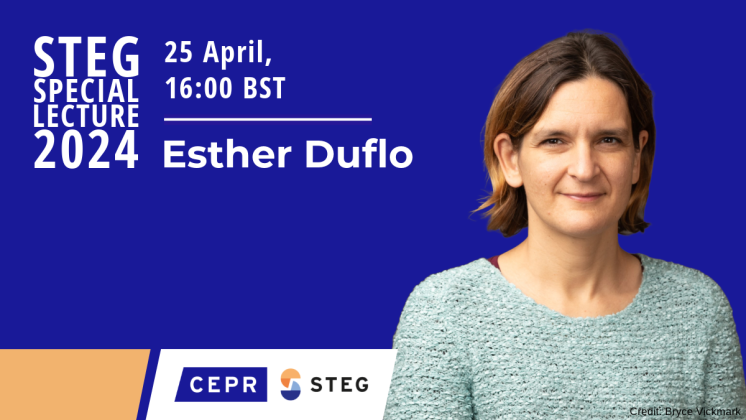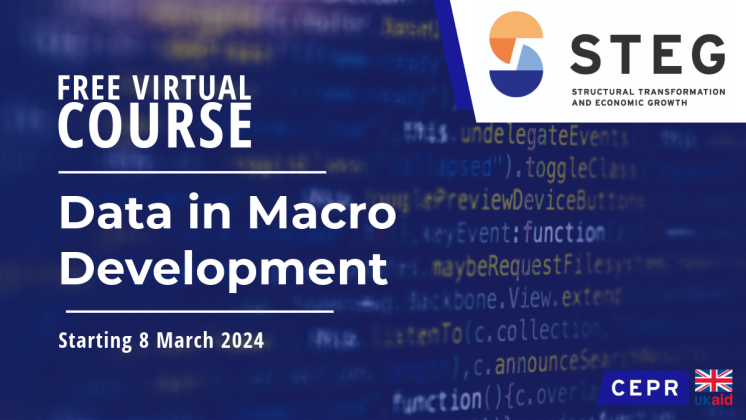Dear All,
STEG has not slowed down over the summer with new funding calls and working papers released over the past month.
The Third Larger Research Grants Call is now open! This is the second-to-last call for LRGs up to £100,000 and will close 3 October. Don't miss out!
The Fifth Small Research Grants Call and Fourth PhD Research Grants Call have opened as well! You can now apply for grants up to £25,000 and for grants exclusively reserved for PhD students. Find out more below!
Our ACET-STEG Fellow, Habtamu Edjigu, talked to Maura Leary, Director of Communications at ACET, about his research and its contribution to the field. Watch the full interview below!
The STEG Working Paper Series has released eight more papers this July! The series is well under way so make sure you don't miss our weekly releases on the STEG website.
Proposals from the Third and Fourth Ideas for Transformation Call, Fourth Small Research Grants Call, and Third PhD Research Grants Call are currently under evaluation.
Lastly, don't forget to get all the dates for upcoming calls and events in your calendar!
Best,
The STEG Team
Third Larger Research Grants Call
STEG invites applications to the third call for proposals for Larger Research Grants (LRGs). This will be the penultimate LRG call under the STEG programme. The fourth and final call for LRGs will be opening in April 2023.
LRGs of up to £100,000 can fund research assistance, data collection and/or purchase, and teaching buyouts, or relevant remuneration practices, for the principal investigator and co-investigators from partner institutions. Grants also support travel to field sites, even when secondary data is utilised. We view this kind of travel (with the possibilities for field visits and conversations with policy makers) as particularly important for researchers who lack prior experience in the countries that they intend to study.
For this funding call, the £100,000 cap will be relaxed for projects with extraordinary data collection costs in low-income countries. In order to study questions around structural transformation, productivity, and economic growth in low-income countries, there is a clear need for access to improved data and we recognise the substantial costs related to these projects. As with all projects focused on data collection, we expect the data to be made publicly available by the end of the grant. While no fixed limit has been placed above the £100,000 cap, the additional budget must be within reason and clearly justified.
Deadline: 23:59 BST, 3 October 2022
Fifth Small Research Grants Call and Fourth PhD Research Grants Call
STEG invites applications to the fifth call for proposals for Small Research Grants and fourth call for proposals for PhD Research Grants.
SRGs of between £10,000 and £25,000 can fund research assistance, data collection and/or purchase, and potentially research stipends/teaching buyouts. Grants also support travel to field sites, even when secondary data is utilised. We view this kind of travel (with the possibilities for field visits and conversations with policymakers) as particularly important for researchers who lack prior experience in the countries that they intend to study.
While PhD students are eligible to apply to our Small Research Grant calls, we are also issuing a special call exclusively for PhD students in order to encourage broader participation in the programme. PhD Research Grants up to £15,000 are essentially equivalent to SRGs and fund similar activities.
Deadline: 23:59 BST, 5 September 2022
A Conversation with ACET-STEG Fellow Habtamu Edjigu
How Can Multinationals Drive Transformation? Habtamu Edjigu, ACET's Structural Transformation and Economic Growth Fellow, talks to Maura Leary, Director of Communications at ACET, about his current research on the impact of linkages between multinational enterprises and domestic manufacturing firms.
Habtamu's research pursues three primary research objectives:
- To measure the extent of linkages with multinationals across countries and over time, compare which African countries have more extensive linkages with multinationals, and explore whether these linkages are increasing or decreasing over time.
- To examine whether linkages are improving labour productivity and technological upgrading in Africa.
- To evaluate whether the origin or nationality of foreign investors impacts the extent of spillovers from multinationals.
Watch the full interview here.
New Papers under the STEG WP Series
Eight new papers have been published under the STEG Working Paper Series in July:
- WP006: Skill Bias, Financial Frictions, and Selection into Entrepreneurship from Ying Feng and Jie Ren
- WP007: Trade, Technology, and Agricultural Productivity from Farid Farrokhi and Heitor S. Pellegrina
- WP008: Misallocation across Establishment Gender from Ashantha Ranasinghe
- WP009: Structural Change, Land Use and Urban Expansion from Nicolas Coeurdacier, Florian Oswald, and Marc Teignier
- WP010: Nutrition Demand, Subsistence Farming, and Agricultural Productivity from Stepan Gordeev
- WP011: Deindustrialization and Industry Polarization from Michael Sposi, Kei-Mu Yi, and Jing Zhang
- WP012: Political Connections and Misallocation of Procurement Contracts: Evidence from Ecuador from Felipe Brugués, Javier Brugués, and Samuele Giambra
- WP013: Macroeconomic Development, Rural Exodus, and Uneven Industrialization from Tomás Budí Ors and Josep Pijoan-Mas
If you would like to submit your paper to the STEG Working Paper Series, please contact the STEG Team at [email protected].
Working papers that have been produced through STEG-funded projects are included in the series and we welcome papers from researchers directly affiliated with STEG as well as researchers' papers that have been presented at STEG-funded events including our Annual Conference and Theme Workshops.
Important Dates
Calls under Evaluation
- Third and Fourth Ideas for Transformation Call - decisions expected by mid August
- Fourth Small Research Grants Call - decisions expected by end of August
- Third PhD Research Grants Call - decisions expected by end of August
Open Calls
- Fifth Small Research Grants Call - closes 5 September
- Fourth PhD Research Grants Call - closes 5 September
- Third Larger Research Grants Call - closes 3 October
Opening Soon
- Fifth Ideas for Transformation Call - opens early October
Find a provisional call timeline for future calls here.
Upcoming Events
- Theme Workshops 2022 - 8 to 20 September
- 2022 Annual Meeting of CEPR Macroeconomics and Growth Programme - 17 and 18 November
- STEG Special Lecture 2022 - November, exact date TBC
If you have any questions, please contact the STEG Team at [email protected].

